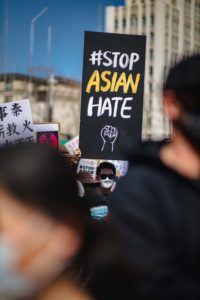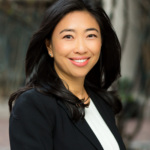Asian American Belonging: Caste and Constitutionality in the U.S.
May 19, 2021

May 19, 2021
![]()
In early 2005, I moved to New Orleans to work alongside former members of the Student Non-Violent Coordinating Committee (SNCC). While supporting their campaign, I found myself re-reading U.S. Supreme Court Justice John Marshall Harlan’s renowned dissent in Plessy v. Ferguson, the infamous 1896 decision legalizing racial segregation until the landmark Brown v. Board of Education overturned Plessy in 1954. I remember studying this dissent in preparation for a dinner with the descendants of Mr. Homer Plessy.

Justice John Marshall Harlan – the “Great Dissenter” from the Reconstruction era, deemed a “moral hero” by Frederick Douglass – wrote the lone dissenting opinion in support of Mr. Homer Plessy, a searing dissent known worldwide as an indictment of the “separate but equal” doctrine and declaration of the U.S. as an anti-caste society.
There is, however, a little-known connection to Asian Americans in Justice Harlan’s famous dissent in Plessy, which I vividly remember reading back then. The dissent mentions Chinese people. Justice Harlan wrote:
There is a race so different from our own that we do not permit those belonging to it to become citizens of the United States. Persons belonging to it are, with few exceptions, absolutely excluded from our country. I allude to the Chinese race. But, by the statute in question, a Chinaman can ride in the same passenger coach with white citizens of the United States, while citizens of the black race in Louisiana, many of whom, perhaps, risked their lives for the preservation of the Union, [and cannot ride in those same passenger coaches].
All of these years later, I still remember thinking then, what is this reference to Chinese people, Justice Harlan? I also remember this sinking feeling as I realized, even at its very best, white America relegates Black people’s freedom into a dissent – a dissent that pits Asian people against Black people while not even believing Asian people belong in and to this nation. In specific terms for Asian Americans, even in one of the strongest articulations of a racially just United States by a venerated Supreme Court justice, Asian people are too different, too foreign, and too strange to belong.
This past year, given the increase in hate and violence targeting Asian Americans, particularly those most vulnerable in our communities, that sinking feeling of mine became acute. Asians do not belong. Attackers are literally yelling this as they beat us. As the above demonstrates, anti-Asian sentiment is not new. There is a long history of white supremacist anti-Asian hate and violence. There is a specific history of violence against Asian women here in the U.S. and across Asia.
During that illuminating evening in New Orleans, which included a walk on the railroad tracks upon which once sat the “Whites Only” railroad car Mr. Homer Plessy boarded in defiance of Jim Crow, I remember Mr. Keith Plessy, a descendent of Homer Plessy, talking passionately about his work. He described the launching of the New Citizens Committee to continue the righteous work of his ancestor and to establish New Orleans as the birthplace of the modern civil rights movement. I remember feeling deeply moved by his work and that of former SNCC members, namely Curtis Muhammad, John O’Neal, Elaine Peacock, and Bob Moses, whose openness and brilliance nurtured and guided countless organizers and lawyers, including me.
I came to believe, and still believe, that we Asian Americans ultimately belong to and in this centuries-old, Black-led movement in the United States to build a just and free society rooted in human rights. We belong in that vision of a caste-free democracy articulated however incompletely by a great defender of Black civil rights, Justice John Marshall Harlan from Kentucky.
And this is precisely where Asian Americans are. From the Vigil for 8 Lives Lost hosted by Red Canary Song to the #AntiAsianRacism Town Hall hosted by the People’s Collective for Justice and Liberation featuring Freedom, Inc‘s Co-Executive Director Kabzuag Vaj to Alex Tom and Dr. Connie Wun‘s conversations with Alicia Garza, to the work of NAKASEC, Asian Immigrant Women’s Advocates (AIWA), and the Society of Asian American Superheroes, Y’all (SAASY) based in Kentucky to countless other national, regional, and grassroots formations across the country, Asian American movement organizers are working in solidarity with Black, Latinx, Indigenous, Native Hawaiian, Muslim American, South Asian American, Pacific Islander, Arab American, other communities of color, and other communities in struggle. We are working to bring about that multiracial democracy in which we all belong.
